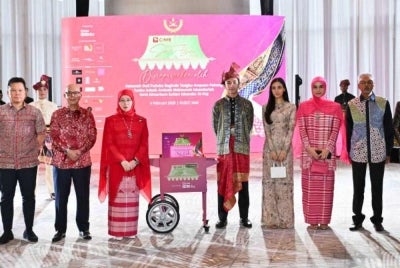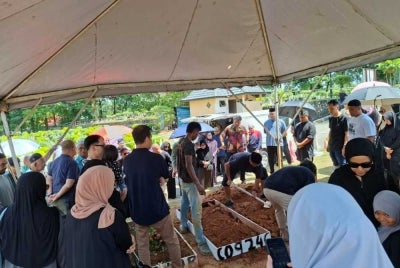Most Malays misunderstood the true concept of 'rezeki' - Dr Mahathir

SHAH ALAM - Majority of the Malays seem to have misunderstood the Islamic concept of ‘rezeki’, with the most prevalent false belief being that sustenance will come even if one does not work for it, claims former prime minister Tun Dr Mahathir Mohamad.
The teachings, perpetuating the notion that things will come flying to oneself, by merely praying without putting in any other efforts was, lamented the 98-year-old, a wrong interpretation of the concept of ‘rezeki’ which needed to be thrown away.
“What they miss is that even in the Quran, it says that you can ask God for help but you must do something for yourself.
"If you don’t do anything for yourself, you will not get any help. So, that is the part that most missed out.
“One must strive to achieve certain goals so that God will give them better opportunities,” said Dr Mahathir in the latest episode of Sinar Specials, 'The Malay Retirement Dilemma Unveiled' which delved into the Malays' retirement inadequacy.
To the unfamiliar, ‘rezeki’ describes the idea of blessings or sustenance that come from a higher power, like God.
All the good things that happen in life, like the food, money earned, the opportunities encountered, and even the people one meets, are considered as ‘rezeki.’
In July, the Employees Provident Fund (EPF) revealed that the Malays will likely have less than RM20 to live off during retirement due to additional setbacks due to Covid-19-related withdrawals, compounded by several other factors.
However, Dr Mahathir also concurred that the Malays generally have little money to start with compared to other races in the country but such disadvantage can be overcome by learning new skills through their occupation so as to earn more money.
He also highlighted the need for Malays to live within their means.
“You should not spend more than you can afford. If you do that, then you are going to be in debt.
“Even if the pay is low, there are ways of spending less, presently, and saving some for the future,” added Dr Mahathir who in the 70’s was heavily criticised over his Malay Dilemma book which needled on the Malays shortcomings.
To save for the future, added Dr Mahathir, has never been part of the Malays’ culture.
“They need to change this (mentality) but at the moment, of course, they are still thinking, why save for the future, you may die in the future. But the problem is as you grow old, you capacity to earn would be reduced.
“And when you cannot earn anymore, when that time comes, you depend on your savings and investments but to the Malays, wealth is for you to spend now not for the future,” he said bluntly.
Download Sinar Daily application.Click Here!















